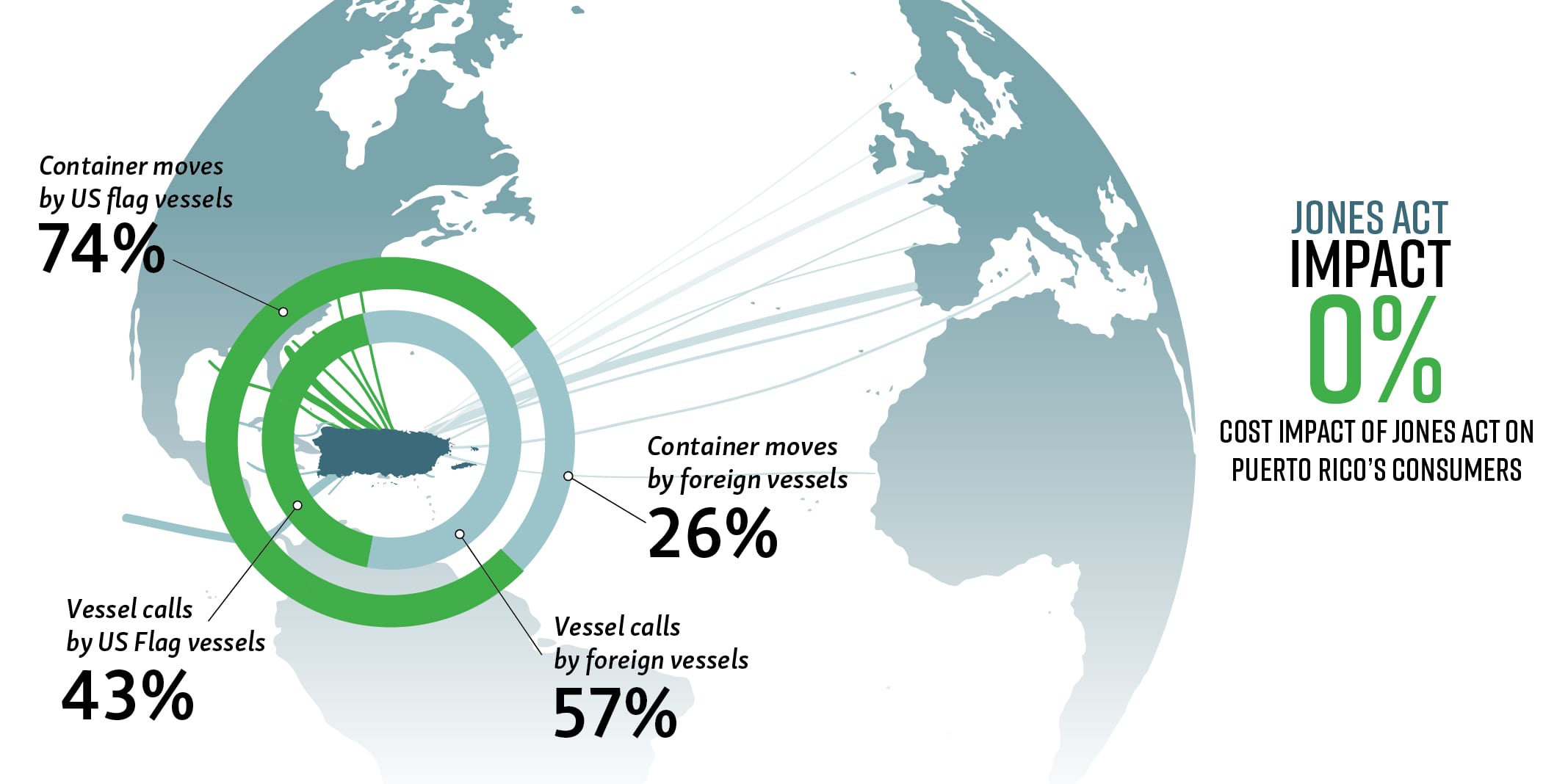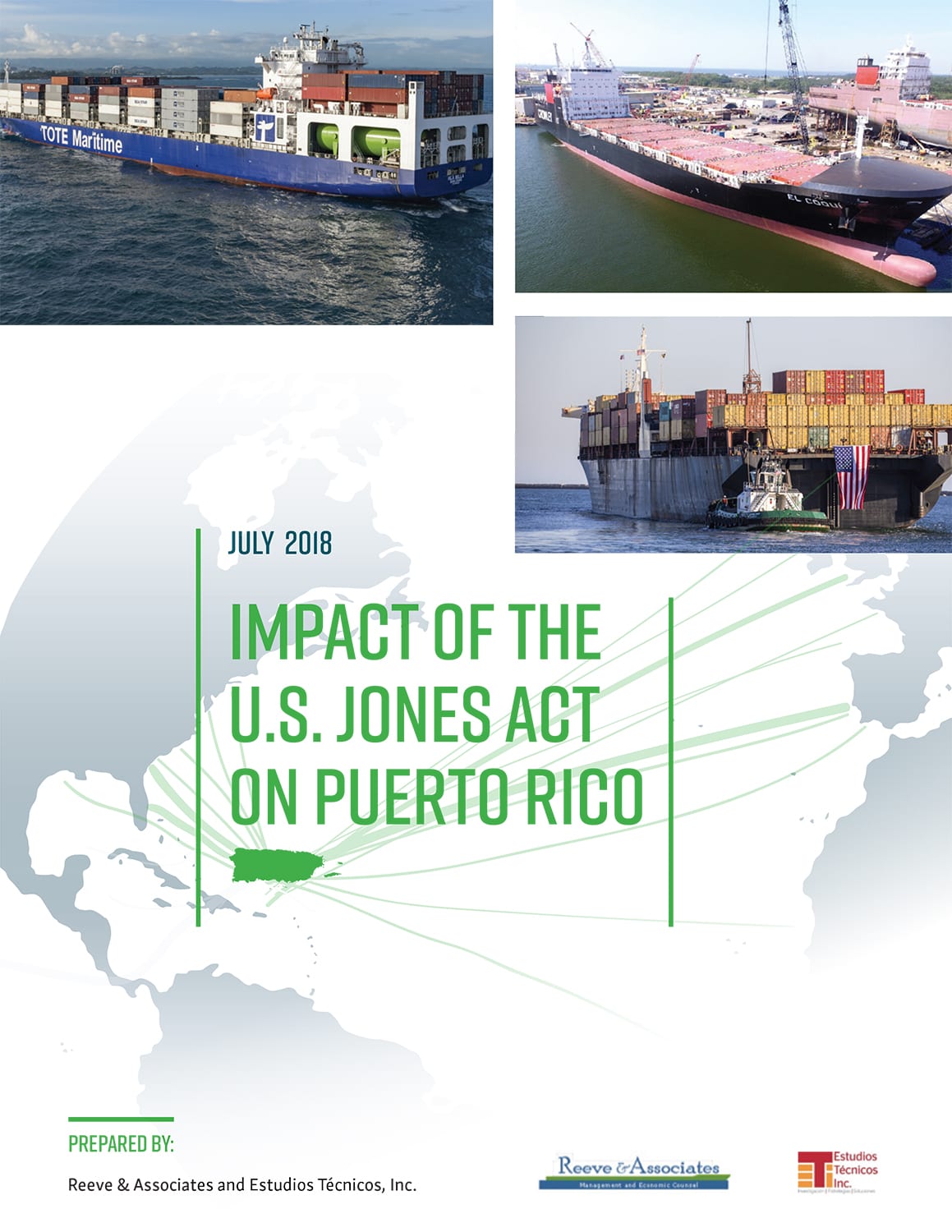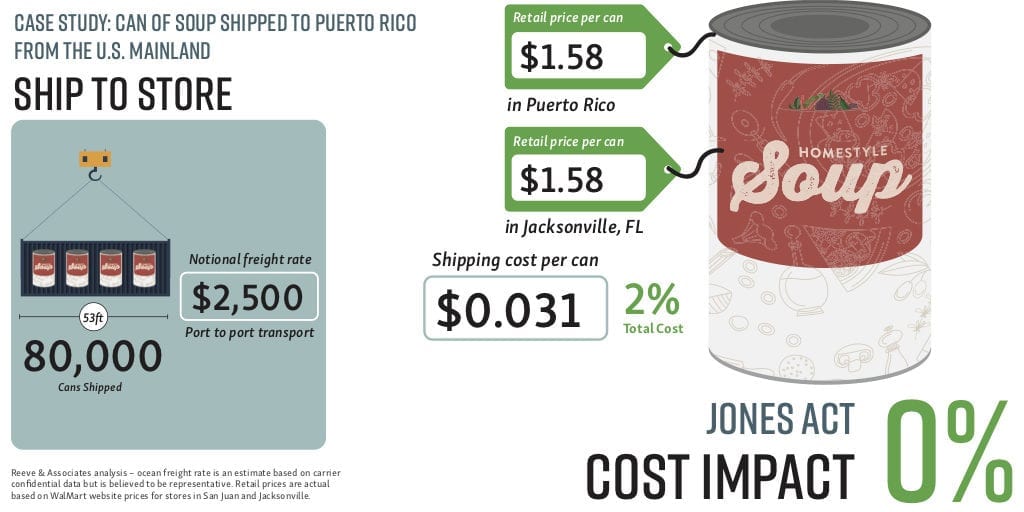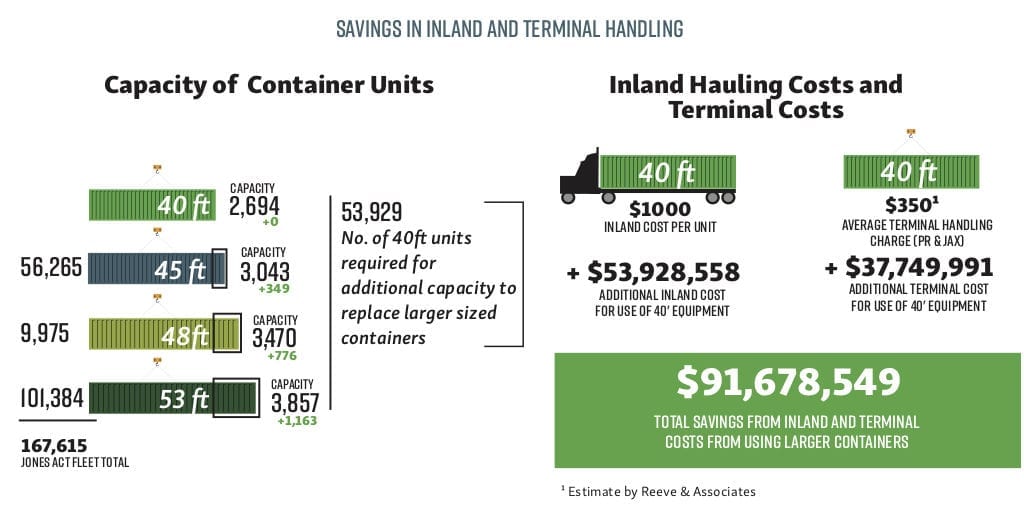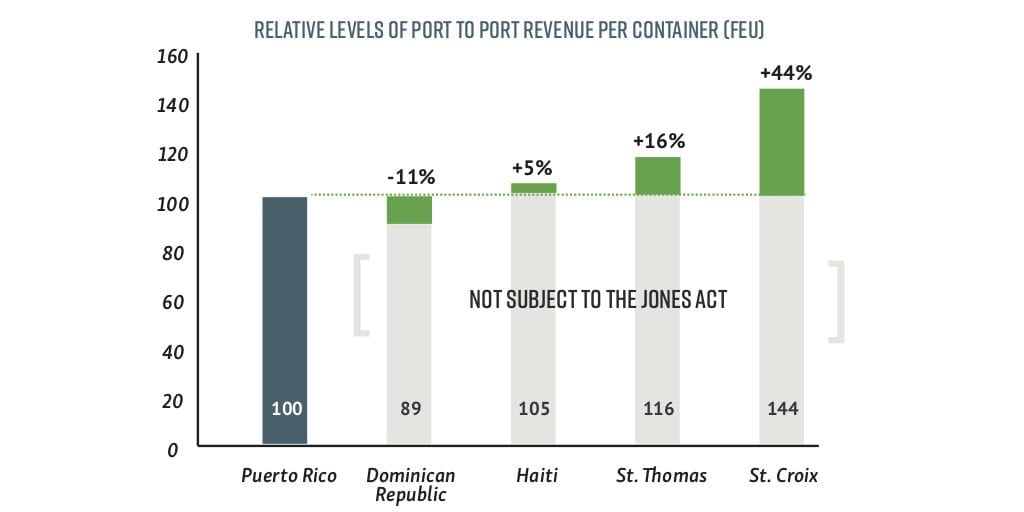A new study performed jointly by Reeve & Associates and Estudios Técnicos, Inc. concluded that the Jones Act has no impact on either retail prices or the cost of living in Puerto Rico.
“…retail prices of goods in Puerto Rico are essentially the same as on the mainland and freight rates for shipments between the mainland and Puerto Rico are very similar or lower than rates for shipping between the [mainland] and neighboring islands of Puerto Rico such as the U.S. Virgin Islands, Haiti, and the Dominican Republic.”
Importantly, the report found that the state of the art maritime technology, Puerto-Rico focused investments, and dedicated closed-loop service offered by Jones Act carriers provide a significant positive economic impact to the island, at freight rates lower or comparable to similar services to other Caribbean Islands. The report also determined that “claims of negative impact are not supported by the facts and ignore clear examples of positive impact that the Jones Act provides.” Click Here to read the full press release.
IMPACT OF THE U.S. JONES ACT ON PUERTO RICO
KNOW THE FACTS
The Jones Act has no impact on either retail prices or the cost of living in Puerto Rico.
A market basket analysis of an assortment of consumer goods at Walmart Stores in San Juan, Puerto Rico, and Jacksonville, Florida, found there was “no significant difference in the prices of either grocery items or durable goods between the two locations.” In fact, retail prices of goods in Puerto Rico are essentially the same as on the mainland.
The report found that shipping costs between the mainland and Puerto Rico make up only a small percentage of the retail price. For example, ocean shipping accounts for just 3 cents (or 2 percent) in the retail price of $1.58 for a can of chicken soup in San Juan. It found that, “[e]ssentially, transportation costs for Puerto Rico are not materially different than those on the mainland.”
Foreign vessels can deliver directly to Puerto Rico from foreign countries
Finding that 57 percent of San Juan’s port traffic in 2016 was carried on foreign vessels, the report noted that there is “nothing in the Jones Act that precludes foreign-flag vessels from serving Puerto Rico directly from foreign countries.
Southbound service is vital to Puerto Rico consumers, while the northbound service is a key contributor to economic development on the island
As highlighted in the report, the fact that the vessels operating in the Puerto Rico trade are dedicated to that route “gives shippers very fast transit times directly between the mainland and Puerto Rico without stops in intermediate ports as typically occurs in international shipping markets.”
The Puerto Rico-CONUS trade operates in a “closed-loop” route. Goods vital for the welfare of the people are delivered promptly from the mainland, while high-value goods are shipped directly to the mainland from Puerto Rico, providing a high speed and very economic supply chain to Puerto Rican exporters.
Carriers provide highly effective logistics systems, including economical and environmentally friendly vessels, which ensure a high level of supply chain efficiency.
The report noted that the “size of equipment has a major impact on the cost of moving cargo ‘intermodally’ in containers.” For example, a 53-foot container has 43 percent more cubic capacity than a 40-foot unit, which provides an estimated $92 million of cost savings annually through greater efficiency.
According to Reeve et al., “the fact that the Jones Act carriers operate dedicated services for Puerto Rico with vessels and intermodal equipment that are uniquely designed to closely integrate the commonwealth with the advanced logistics systems of the mainland provides cargo owners with major economic and service advantages.”
The report highlighted that the carriers in Puerto Rico offer shippers options that are “designed to meet the requirements of the range of cargoes moving in the trade,” including fleets of thousands of containers and trailers capable of carrying either dry or refrigerated cargoes, as well as vessels and barges designed to carry vehicles in roll-on/roll-off mode and carry breakbulk cargo that is too large to be accommodated in a standard container.”
There is no Jones Act freight rate premium for ocean transport.
The report found that freight rates for shipments between the mainland and Puerto Rico are very similar to or lower than rates for shipping between the mainland and neighboring islands, including the U.S. Virgin Islands, Haiti, and the Dominican Republic.


